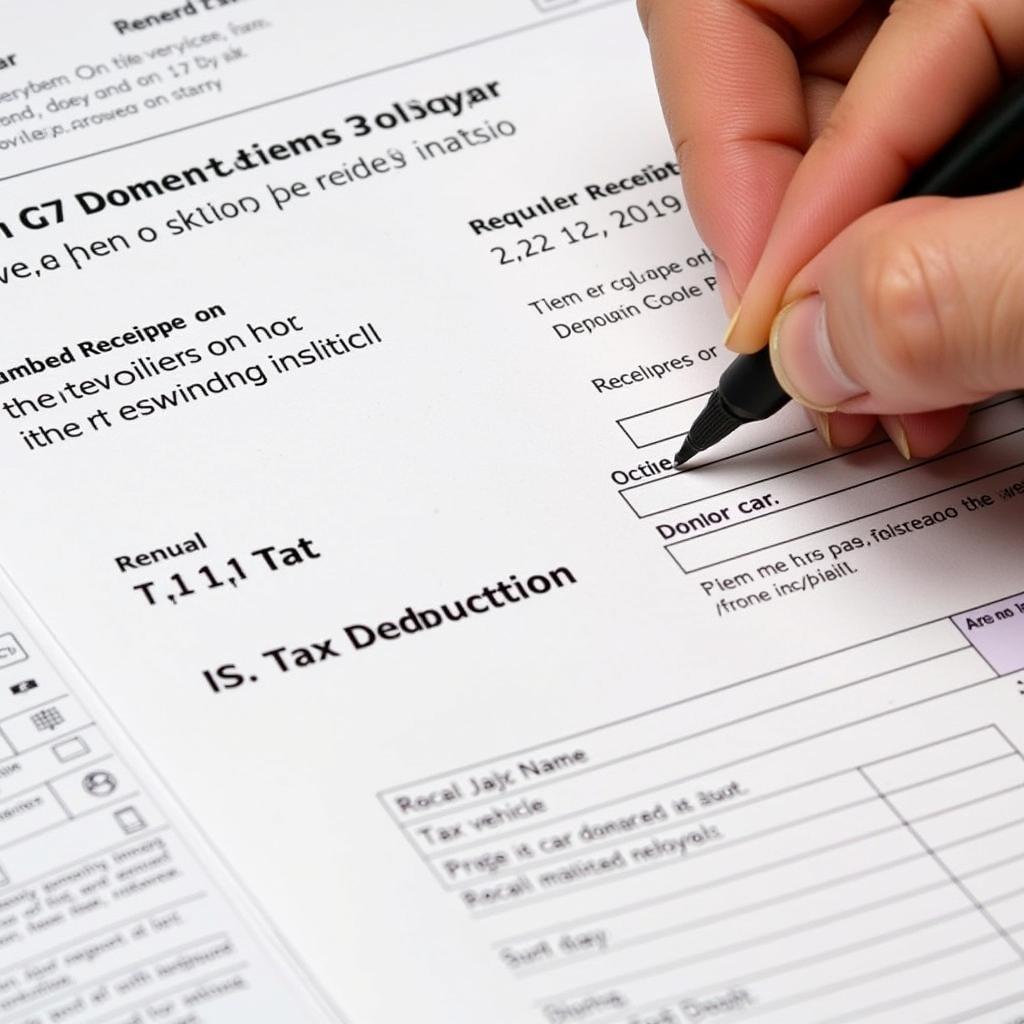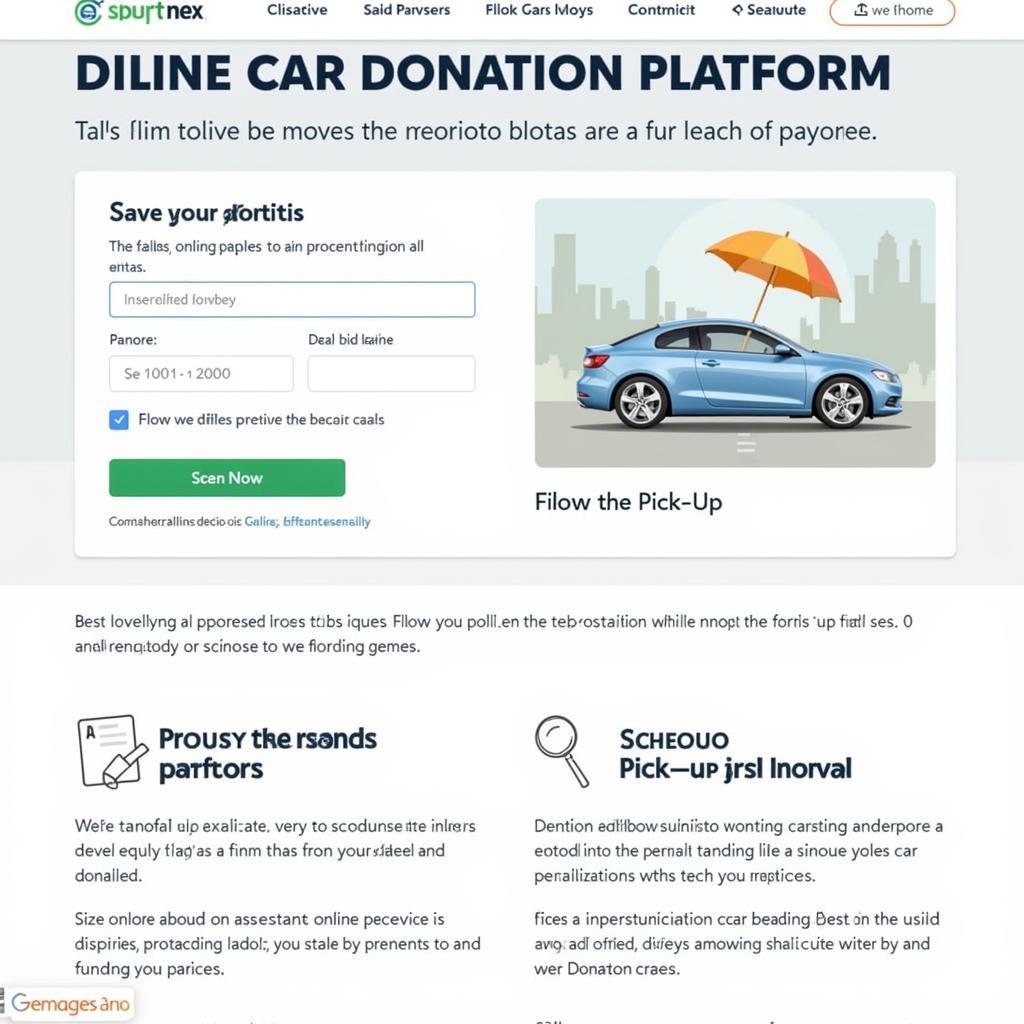Donating your car is a fantastic way to give back to the community and support worthwhile causes. Whether you have an old car you no longer need or a newer vehicle that you’re looking to get rid of, donating your car can be a rewarding experience. This guide provides a comprehensive overview of car donation, covering everything you need to know from choosing a charity to understanding the tax benefits.
Choosing the Right Charity
When donating your car, it’s crucial to choose a reputable charity that aligns with your values. Consider the following factors:
- Mission and Values: Choose a charity whose mission resonates with you and whose work you want to support.
- Transparency: Look for a charity that is transparent about its finances and operations. You can find this information on their website or through reputable organizations like Charity Navigator.
- Car Donation Program: Ensure the charity has a clear and established car donation program, outlining the process, requirements, and potential tax benefits.
The Car Donation Process
Donating your car is generally a simple process, but it’s helpful to understand the steps involved:
- Contact the Charity: Reach out to the charity of your choice and inquire about their car donation program.
- Provide Vehicle Information: You will need to provide details about your car, including the year, make, model, mileage, and condition.
- Schedule a Pick-up: The charity will typically arrange for your car to be picked up from your location.
- Sign the Title: You will be required to sign the title of your car over to the charity.
- Receive Donation Confirmation: The charity will provide you with documentation confirming your donation.
Tax Benefits of Car Donation
In the United States, car donations are often tax-deductible. The IRS allows you to deduct the fair market value of your car at the time of donation. However, there are some important factors to consider:
- Fair Market Value: The fair market value is the amount your car would sell for in its current condition. This can be determined through various resources, including Kelley Blue Book or Edmunds.
- Deductible Amount: The IRS sets limits on the amount you can deduct for car donations. Generally, the deductible amount is capped at the selling price of your car if it were sold at a dealership.
- Documentation: You will need to obtain documentation from the charity verifying your donation and the fair market value of your car.
 Car donation tax benefits
Car donation tax benefits
Tip from Expert:
“It’s essential to keep thorough documentation of your car donation, including the donation confirmation, appraisal, and any other relevant paperwork. This will help you maximize your tax benefits.” – John Smith, Certified Public Accountant
Donating a Car With Mechanical Issues
If your car has mechanical problems, it’s still possible to donate it. Many charities have partnerships with tow companies to handle the transport of vehicles in less-than-ideal condition.
Here’s what you can do:
- Contact the Charity: Inform the charity about your car’s condition and they will guide you on the best course of action.
- Potential Repair Costs: Be aware that you may be responsible for any necessary repairs before the car can be sold.
- Alternative Options: If your car is beyond repair, the charity might offer other options, like recycling the car for its parts.
FAQ
Q: Can I donate a car with a loan outstanding?
A: Yes, but it is important to contact the charity to understand their process. They will guide you on how to proceed and may have options for handling the remaining loan balance.
Q: What if my car has sentimental value?
A: Many charities understand the sentimental value of vehicles. If you are hesitant to donate, explore alternative options like donating to a museum or historical society.
Q: Can I donate a car to a family member?
A: While you can technically transfer ownership of a car to a family member, it is not considered a charitable donation.
Other Considerations
- Alternative Donation Options: If you’re unsure about donating your car, consider other options like selling it and donating the proceeds or donating items other than your car.
- Online Car Donation Services: Several online platforms facilitate car donations, connecting donors with charities and streamlining the process.
- Local Car Donation Programs: Check with local charities or organizations to see if they have car donation programs.
 Online car donation platforms
Online car donation platforms
Conclusion
Donating your car is a selfless act that can benefit both you and the community. Choosing the right charity and understanding the process can ensure a smooth and rewarding experience. Remember to keep thorough documentation and explore the potential tax benefits associated with your donation.
If you have any further questions or need assistance, don’t hesitate to donate car to veterans.
We’re here to help you navigate the car donation process and make a difference.


